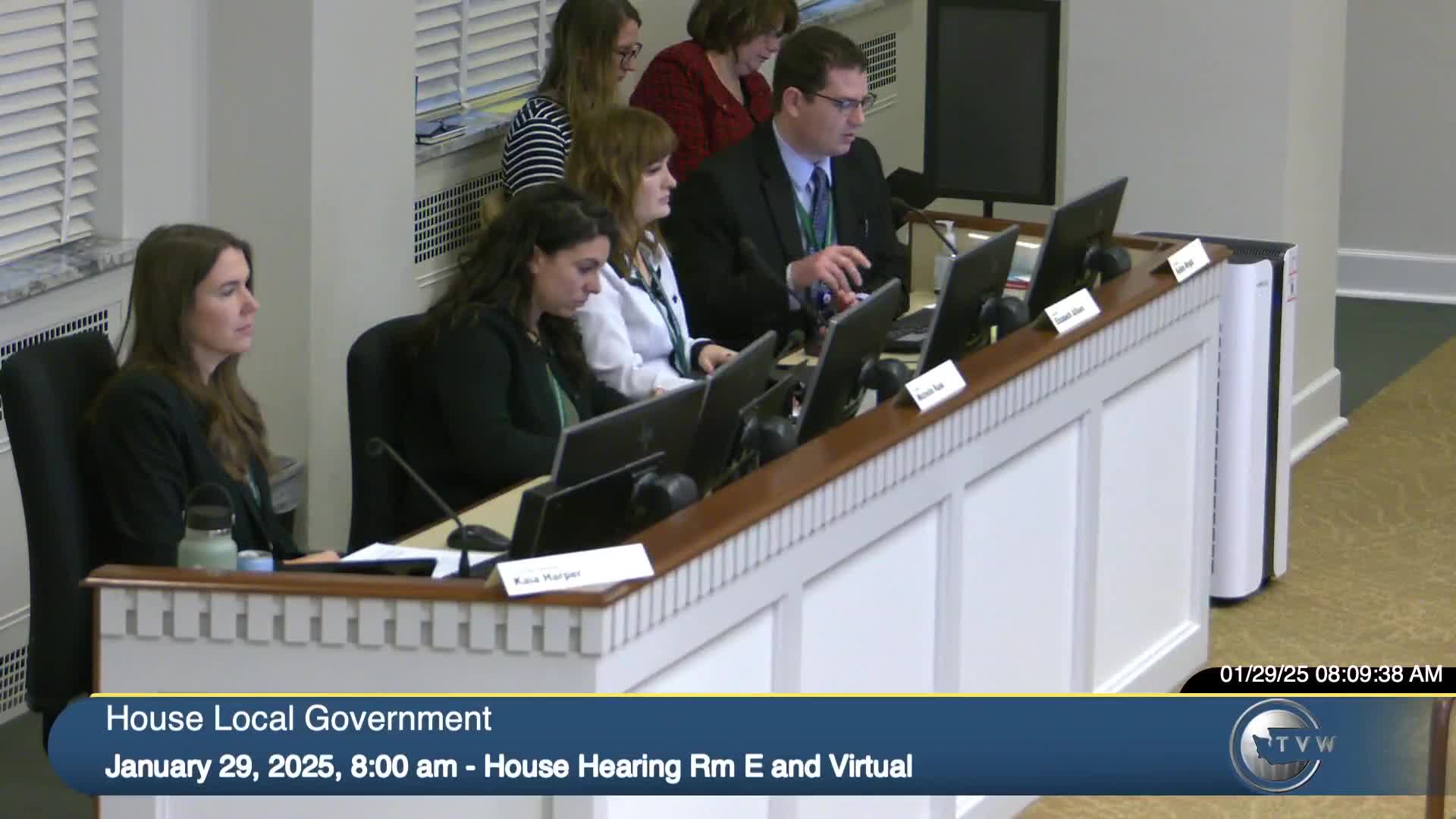Local governments face new permit processing deadlines under 2023 Growth Management Act changes
January 29, 2025 | Local Government, House of Representatives, Legislative Sessions, Washington
This article was created by AI summarizing key points discussed. AI makes mistakes, so for full details and context, please refer to the video of the full meeting. Please report any errors so we can fix them. Report an error »

Local governments in Washington are tightening regulations on land development to streamline the permitting process and ensure timely decisions. During a recent House Local Government meeting, lawmakers discussed the importance of adhering to new deadlines established under the Growth Management Act (GMA), which took effect on January 1, 2023.
These deadlines dictate how quickly local governments must process permit applications, with specific timeframes based on the complexity of the project. For instance, if a permit does not require public notice or a hearing, a final decision must be made within 65 days. If public notice is needed, the timeframe extends to 100 days, and if both public notice and a hearing are required, the deadline is set at 170 days. Failure to meet these deadlines could result in local governments having to refund a portion of the permitting fees paid by developers, incentivizing timely processing.
The meeting also highlighted that local governments have some flexibility in determining which deadlines apply to specific projects. However, they must maintain a consistent record of meeting these deadlines to avoid penalties. Notably, local governments that implement measures to expedite the permitting process can be exempt from refund requirements, provided they meet the deadlines at least half of the time.
Another significant topic discussed was the designation of urban growth areas, which are intended to focus development in regions where infrastructure and services are already established. The proposed bill stipulates that any project within these urban growth areas must include at least one residential unit, reinforcing the commitment to address housing needs in growing communities.
These discussions reflect a broader effort by state lawmakers to balance development with community needs, ensuring that local governments can effectively manage growth while providing necessary housing options for residents. As these regulations take shape, the impact on local communities will be closely monitored, particularly in terms of housing availability and the efficiency of the permitting process.
These deadlines dictate how quickly local governments must process permit applications, with specific timeframes based on the complexity of the project. For instance, if a permit does not require public notice or a hearing, a final decision must be made within 65 days. If public notice is needed, the timeframe extends to 100 days, and if both public notice and a hearing are required, the deadline is set at 170 days. Failure to meet these deadlines could result in local governments having to refund a portion of the permitting fees paid by developers, incentivizing timely processing.
The meeting also highlighted that local governments have some flexibility in determining which deadlines apply to specific projects. However, they must maintain a consistent record of meeting these deadlines to avoid penalties. Notably, local governments that implement measures to expedite the permitting process can be exempt from refund requirements, provided they meet the deadlines at least half of the time.
Another significant topic discussed was the designation of urban growth areas, which are intended to focus development in regions where infrastructure and services are already established. The proposed bill stipulates that any project within these urban growth areas must include at least one residential unit, reinforcing the commitment to address housing needs in growing communities.
These discussions reflect a broader effort by state lawmakers to balance development with community needs, ensuring that local governments can effectively manage growth while providing necessary housing options for residents. As these regulations take shape, the impact on local communities will be closely monitored, particularly in terms of housing availability and the efficiency of the permitting process.
View full meeting
This article is based on a recent meeting—watch the full video and explore the complete transcript for deeper insights into the discussion.
View full meeting
